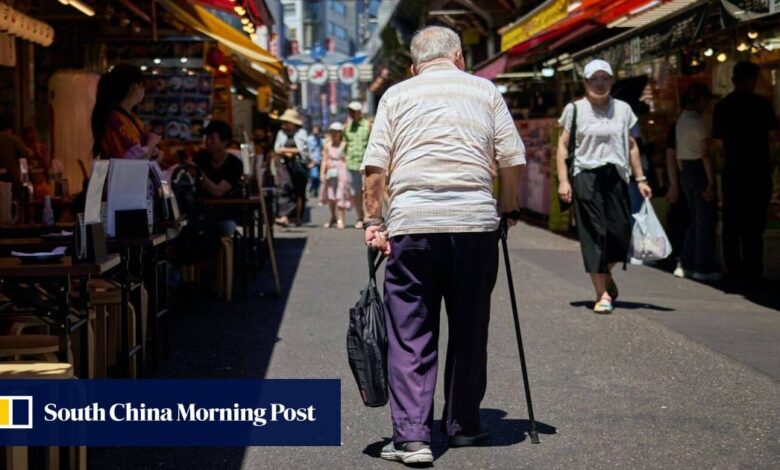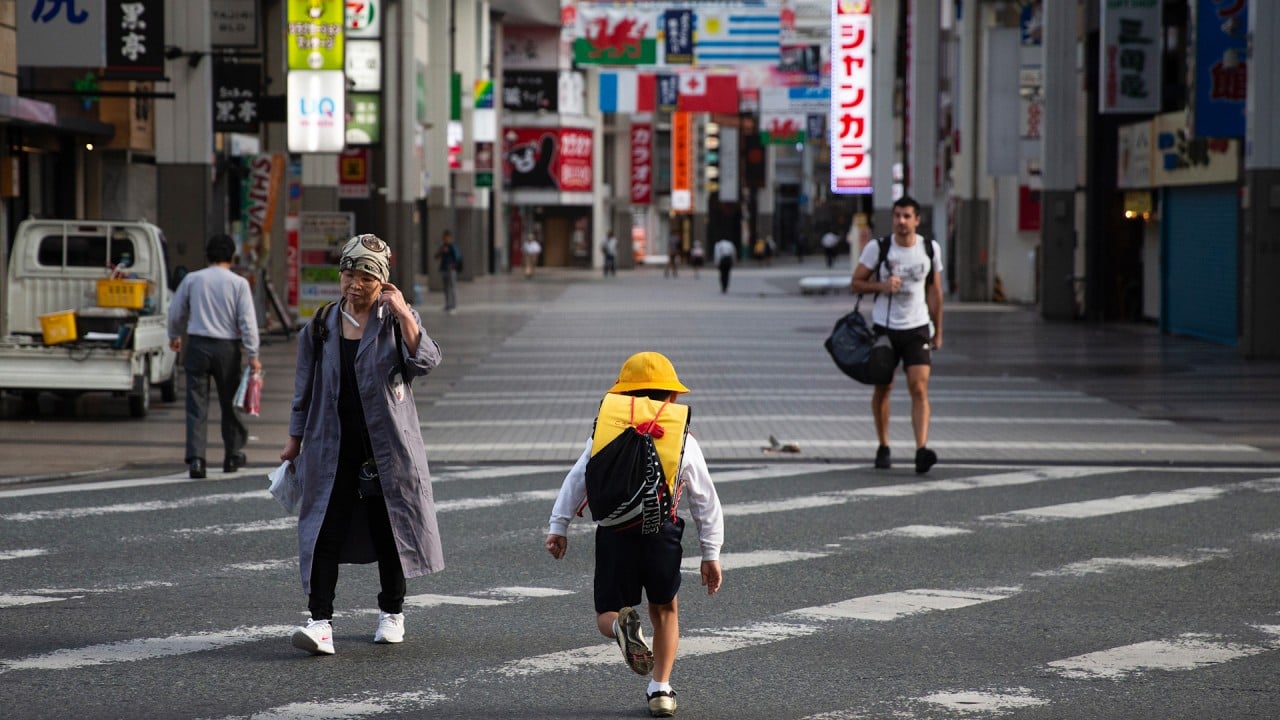In Japan, more than 1 in 4 are now old enough to retire as births continue to plummet: ‘it is serious’

[ad_1]
Some 12.59 million of Japan’s 124 million people fell into this age bracket as of mid-September, according to data published by the ministry of internal affairs on Monday – up 270,000 year on year.
When expanded to include Japanese aged 75 or older, the number has surpassed the 20 million mark for the first time, increasing by 720,000 over the past year, the data shows. Those who fall into this age bracket were born before 1949, in the immediate aftermath of Japan’s World War II defeat.
More broadly, some 36.23 million Japanese were 65 or older as of September 15, with a record 29.1 per cent of the population now above retirement age. Of that total, 20.51 million were women.
In parallel with the ageing population, government spending on healthcare and pensions is also rising and presently accounts for around one-third of all public spending. The ministry of health and welfare recently requested a budget of 33.73 trillion yen (US$228.3 billion) for the next financial year, up 587 billion yen (US$4 billion) from this year.
Over 1 in 25 Tokyo residents are now foreigners as Japan population tumbles
Over 1 in 25 Tokyo residents are now foreigners as Japan population tumbles
“People are simply living longer, thanks largely to a good diet, healthy lifestyle choices, medicines that are constantly getting better, and the high standard of healthcare in Japan,” said Yoko Tsukamoto, a professor of infection control at the Health Sciences University of Hokkaido.
“It is no longer unusual to see people in their 80s and even 90s coming to hospitals now for surgery and then being allowed to go home again [straight] afterwards.”
Governments have been trying for many years to find ways to encourage young couples to have children or larger families, but nothing seems to be working
“People are also aware they need to take care of their mental well-being,” she said. “There have been studies that show older people who have a great deal of social interaction and mental stimulus remain in better health and for longer than people who focus solely on exercise.”
The problem, Tsukamoto said, lay at the lower end of Japan’s age spectrum.
“Governments have been trying for many years to find ways to encourage young couples to have children or larger families, but nothing seems to be working,” she said. “The bottom line is that it is very expensive to have children in virtually all developed countries, so this is not a problem that is unique to Japan. But it is serious.”
Reversing the crisis would be a huge challenge, however.
Australia joins Singapore, China, Japan in tackling woes of an ageing population
Australia joins Singapore, China, Japan in tackling woes of an ageing population
By 2100, the UN statistics forecast that 18.5 per cent of all Japanese will be 80 or older, slightly surpassed by South Korea with 18.7 per cent.
“A country like the US was founded on immigration, but Japan is just not built the same way,” she said. “Japan needs to focus on greater automation, artificial intelligence and the development of robot technology to make up for the shrinking work force.”
[ad_2]
Source link





